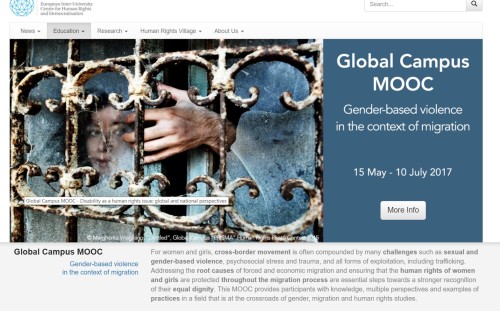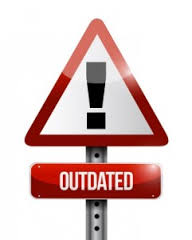Eager to tell you about the MOOC on Gender Based violence in the context of migration!
The course will begin on May 15!
what is a MOOC? a MOOC is Massive Online Open Course , that is offered for free by the Global Campus of Human Rights coordinated by the European Inter-University Centre for Human Rights and Democratisation (EIUC).
The Mooc addresses gender, migration, and Human rights studies. The Lecture I participate in, is related to gender based violence faced by migrants and asylum seeking girls in the MENA region. The Political Sciences Institute (ISP) of Saint Joseph University part of the Arab Master in Democracy and Human Rights, has worked hard while dedicating a team to gather data, prepare, review, shoot, edit and produce the MOOC on GBV addressed by migrants girls and women in the region. Examples for this specific lecture are taken from the newest published reports in the region related to GBV and SGBV. Sexual Exploitation, trafficking Statelessness, Child Marriage, Schooling and access to education are presented. Also main International Instruments addressing GBV are presented.
The MOOC is a free course of 5 hours per week, for 6 weeks, that is open to “upper year undergraduates; postgraduates; NGO activists and practitioners interested in interdisciplinary human rights, gender equality, women’s empowerment, migration; young lawyers and social scientists; active and motivated citizens from around the world.”
I am very excited to be part of this Global Campus MOOC, and to have prepared the first MOOC addressing GBV and women’s rights in the region. Can’t thank enough the team who helped put all the lecture together (ISP team you rock! ) as well as the friends who helped gather the latest information in a very short deadline. (Special thanks to Ghida, Hayat, Raghda, Zeina, Myriam, and special thanks to Jihad who filmed and edited the lecture ).
Stay tuned and follow the link to participate and enroll in the MOOC! https://www.eiuc.org/education/global-campus-mooc-gbv-migration.html
In solidarity from Lebanon
Let us address GBV in our region and internationally with sustainable solutions!
Rita Chemaly

Screen Shot taken from the Global Campus page https://www.eiuc.org/education/global-campus-mooc-gbv-migration/the-mooc.html

 What do they do ? they are a ” a local hunger relief initiative run by a group of volunteers with a passion and will to fight hunger in Lebanon. ”
What do they do ? they are a ” a local hunger relief initiative run by a group of volunteers with a passion and will to fight hunger in Lebanon. ”












